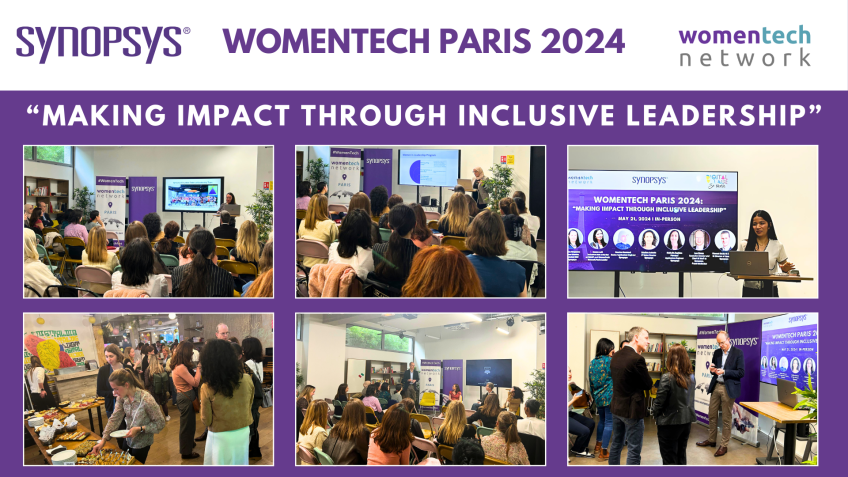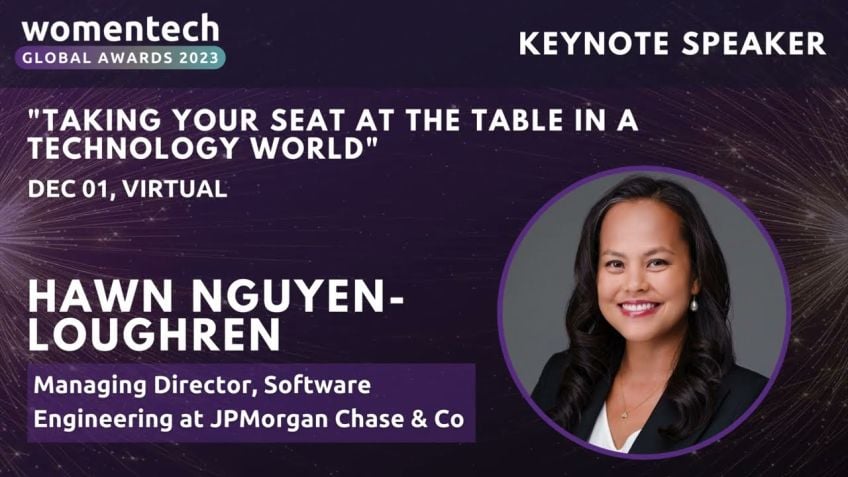Moving Beyond the C-suite. Life after the C-suite track
Exploring Life Beyond the C Suite
Welcome to an enlightening discourse on managing life after occupying top executive roles. If you've ever pondered career life after the C suite, this post will help you understand what awaits beyond.
Decoding the Journey to the Top
As you progress in your career, you may reach this polished, C-suite level. Many encounters shape this journey, including amazing mentors, challenging situations, opportunities, and difficult bosses.
For me, the journey to my current position as CFO of Wing has been defined by a unique career timeline, with multiple events contributing to my professional identity. Along the way, I've learned to embrace change and let my curiosity guide me.
Building Your Brand and Finding Your Superpower
In life after the C suite, remember that building your personal brand is vital. I recommend identifying three to five key aspects that make you unique. This could be your industry experience, global exposure, or unique experiences at different company sizes.
Remember, what makes you unique may evolve throughout your career, and that's okay.
Board Journey: An Enlightening Path
Beyond day-to-day executive responsibilities, one growing possibility after the C suite is board membership. Board roles offer a high-impact, strategic perspective without the burdens of operational duties. It can be gratifying to have a seat at the table and help shape a company's mission.
Align Your Superpower with Your Desired Role
Again, when considering a board role, remember to align your superpower with the type of board you are interested in. Ensure that your branding is consistent across all platforms, including LinkedIn.
Why Being on a Board Matters
Serving on a board can be incredibly gratifying. You help drive company strategy and get to bring your unique culture and perspective to the table. What’s more, it's about 240 hours a year commitment, making it a substantial yet manageable responsibility.
Conclusion
In building your career, remember to construct your personal board of directors and develop your brand. Defining and owning your superpower will prove useful as you chart your path, while networking will keep you connected with the right opportunities.
Always dream big, because life beyond the C suite promises to be an exciting exploration filled with limitless opportunities.
Video Transcription
Hi, everyone out there. I'm gonna talk about beyond the C Suite. And so hopefully this will all work. There we go. So first I'm gonna just level set and talk about how I got to my current position. I am CFO of Wing.So I'll talk a little bit about that journey. We'll go into building um your brand. Like why that was important in the journey of life after the C Suite, um the C Suite superpower and then the board journey that I took but to level set and just get us all oriented. It all starts with some type of timeline. We all have them. I put together for you guys. My career timeline, you may see this as a career timeline that's polished and makes sense and it it it progressed along the way nicely. When I look at this. I see a lot of forks in the road. I see a lot, a lot of scared times. I see a lot of unsure times about how is this going to all work out? I see great opportunities. I see amazing mentors. I see very bad situations, bad bosses all along that career trajectory that got me to the end as CFO of Wing and board member of user testing in that last box that I want to hone in on as we talk later about it all still stems about life after the C suite and curiosity, you know, there are many faces of a career.
So just doubling down a little bit about that journey, if you will, you know, you can, you can see the beginning of my career. The CPA the attorney really trying to get my technical skills together, moving on to serving on like my first type of board, which was a nonprofit, getting more experience as a, as a people manager, then moving to a chief accounting officer, getting board reporting responsibility, joining a private board and then finally being a CFO a public board member and really be a strategist.
So here I am. Um I'm at wing and I think what's important to, to tell you guys just again from the the timeline, history of this all is like what drove me to go there if some of you are old enough to remember, there is a cartoon called the Jetsons, although it is in reruns. So maybe people still see it. But as a kid for me, that cartoon was magical. When I watched the Jetsons, I saw things like oh robotic like um maids like a Roomba, I saw holograms, I saw smartwatches 3D, printing. All those things seemed so unattainable. Back in the 19 seventies. Even to flying drones. Yes, flying drones were shown on that cartoon. Um, I was always amazed about what technology could do to better our lives. And I, if I, I thought if I ever got old enough, I had an opportunity to work in it. I would, I also loved to fly. Um, I, I flew at a very young age, my parents put me on a plane at almost five years old to go visit my grandparents. And since then I've probably visited over 35 countries.
Um I was intrigued about taking my passions and my superpower and joining it with the company that's doing those things. And so without further ado for those of you who don't know what wing does. Wing is a subsidiary of alphabet, which is Google's parent company. We've built a small lightweight aircraft navigation system that can deliver small packages directly to homes in minutes. We've made over 200,000 commercial drone deliveries and many, many more test flights. We've done this in three continents, including the US Australia and Finland.
In fact, in the first three months of this year alone, we've done over 500 I mean, over 53,000 commercial drone deliveries. And as you can probably imagine the convenience of doing something. This is super big, but even more interesting to me at scale is the impact of last mile delivery, cutting down traffic reducing emissions and making our roads safer. In fact, there's a Virginia Tech study that found that the average at scale. If you look at the average US metro area drone, the commercial drone delivery could reduce vehicle miles by 300 million miles, which translates into taking 25,000 cars off the road, avoiding 560 car accidents and cutting down 100 and 14,000 tons of CO2 which is like planning 46,000 acres of new forest.
So you can see I'm passionate about it and that is the why I came to wing. But getting there is only part of the story here guys. What's really important is understanding what is your unique value proposition, what is your brand and in building your brand, you really need to look at 3 to 5 things that make you unique could be, their industry could be global exposure for me. I actually had gotten a chance to be an expat over in Switzerland and Europe. And that helped me kind of stand out as of having some unique experiences. Uh amongst my peers, company sizes, you may have worked for big companies, small companies, start ups this industry again.
What makes you unique and, and different than the next person? And then you need to be able to confidently speak about that and be passionate about it and news flash, news flash. Before I get to this part, I want to point this part this out what makes you unique will probably change over that career, over that lifetime. And that's ok when I started my career, what made me unique was that I was a CPA and a lawyer. I rarely even lead with that. Now, when I, I talk about my brand and my power, it's, it's one of those and things. And so it's ok over a career to continue to change. What's your unique value proposition? In fact, it probably will as you get more experiences. So here's something that, you know, I learned very early on. The other thing that's very important on this journey is building your own personal board of directors, not one person has made it to the c Suite alone. There is somebody who has supported him or her throughout that career. And so I like to, I like to call it my personal brand, uh my personal board of directors, I did a little tongue in cheek here in terms of, of the people that I picked, but I do have a steady set of people in my life.
There are people who have worked with me that I've worked for. There's people that have actually worked for me. There are people that have not been in my company. I just know them professionally and they're just friends that I admire their careers. Whoever it is, these should be people that you, you seek out, you run ideals by them, you run, you know, practice out your brand pro proposition to them and see what, how they react. These are the people that really help, support your career and everybody should have a personal board of directors. And so next, you really have to think about, well, what is your superpower? I just said, brand yourself, but you were talking about the C suite here. And so you have to think about what is it that you're bringing to the C suite? What are those skill sets that make it such that you have a superpower that helps you, especially if we're talking about life after the C suite. You know, there are many ways to go about this. These are some of the the the more common ones I'm hearing now nowadays growing and scaling is big. Um product leaders go to market. I like to say Uiaio, my there's all kinds of eyes but whatever it is, you really need to align with your superpower and then this is super important. Make sure all of your branding is consistent with your superpower.
I cannot tell you how many times I get uh somebody who wants to do a linkedin connection and I meet with them and I look at their linkedin and I talk to them on the phone and the two do not match. They tell me their superpower is, is being a pro guru and I go to their linkedin and I see nothing about product in it whatsoever. What you have to realize is that there are conversations going on about you by decision makers in rooms that you are not even in. So let that settle, people are talking about you, they're either supporting you or they're not supporting you based off of what they know about you. And a lot of times one of the first things people will do is they will go to linkedin to see what you say about yourself. So it's super important that you make sure that your branding of whatever your superpowers are, is consistent across all mediums that's including linkedin and wherever else you are online, that's including in bios speaking engagements, you need to be on point.
So my my example to you um is I have this everywhere where you will search for me on the internet. I'm driving financial excellence through accounting technology adoption and high growth management for scaling companies. Um and it just kind of rolls off off off the tongue there, make sure that you are very consistent about your superpower. And again, it's ok if your superpower evolves as you do. So let me share the board journey with you guys. The question was, is there life after the C suite and I add it during the C suite because I'm still in the C suite. Now I had to decide for myself what that meant. Um Did that mean after the C suite? I would just head to the beach and I, and by the way, I call these, my three BS. Would I head to the beach? Uh Would I join Bay and become a background dancer? That one was really hard to turn down or would I look at board service? I don't think it's a shock here. The answer is I decided to go for board service. So part of it is taking a step back. I'm gonna assume that not everybody here knows what a board actually does. And for purposes of the, of this presentation, I'm specifically focusing on public company boards. Those are boards that uh trade on stock exchange, um but other boards do something very similar.
So boards first and foremost are strategic, they are not there to operate the company, they are there to give strategic decision making advice and then they do have to decide on certain key major um decisions for the company. Like if the company is going to do um a merger and acquisition, if you're reading or seeing anything going on the news right now with Twitter, you see that that board is very busy deciding on that key decision right now. Um There's also every uh you know, boards have to do lots of compliance and audits and lots of regulatory things that, that they have to comply with, especially in the United States with the Security and Exchange commission. So that is like AAA basic fundamental duty of a board.
Um People are actually surprised and, and often don't realize that boards fire and hire CEO S, they do the CEO S annual performance and sometimes they actually get involved in some of the, the other C suite um executives. So again, the boards are ha have to have a lot of responsibility in terms of making sure that the company has the right management who is um shepherding shareholder value. And then last, the other big thing that boards do is they set compensation. Um And in addition to setting it for the CEO, they often get very involved in just the compensation philosophy of the entire company and figuring out where does the company want to be positioned in terms of how it pays um its workforce. Does it want to be on the high end in the middle range on the low end and you know, the pros and cons of doing all those things. So that is um that is kind of what a board is charged with doing. Now, there are many types of, of boards. Uh like I said, I'm focusing on um public company boards. But my pathway to getting to a public company board did involve working in a non uh being on the board of a nonprofit organization than being on the board of a private company that was not, you know, publicly traded on a stock exchange all the way to getting on a public company board.
So what I will say is that I think that a lot of those earlier experiences really helped me and shaped my confidence and my ability to understand, you know, what my, what we call our fiduciary duty, our strategic duty is in running um, a board and, and working on a board. Now, in addition to different types, obviously, there's all kinds of flavors. I like to call it. There's boards and all kinds of, you know, what industry are you in? What size of board do you want? Do you want to be a board advisor to a start up? That's like a series a like that's kind of, that has kind of, you know, one way of, of doing it versus being um on the board of a late stage company that's about to go public and only has enterprise clients. That's another type of board when you think about life after the C suite or during. Um you wanna really hone in on like where does your superpower match with the type of, of boards you're looking for? If your superpower is scaling companies, you may really wanna look for boards that are not so start up as like a, a series a but maybe later stage and they're about to go public or maybe they've just gone public but they're, they're trying to get to like another level because scaling is your superpower.
That's where you, you thrive. Um Some people like the start up part like they like to get the 1st 10 million in the door, you probably should look for a series, a company again matching your superpower with all the different kind of business uh board flavors out there is, is critical and this is where your board of um your personal board of directors can kind of help you um figure out where you should target your, your time.
So why be on a board again, I could have just been a background dancer for Beyonce. So I don't know why I chose to be on a board. Well, besides, you know, Beyonce travels a little bit too much for me. Um I love the fact that you are really making um an impact. You're really helping to drive the strategy of a company, but you actually don't have to go and do it. I've been an operator for so long where I have to go actually do the work. It is a really different feeling to go to a board meeting, white board, uh an issue, talk about where you want to go with it and then you actually don't have to do the work to make it happen. It's a completely different muscle and I'm, I gotta tell you, I'm actually getting very used to it. Um The other thing I think is just that you uh you bring your unique community and your unique culture to every situation. I will tell you being on a board during um you know, a global pandemic during the, you know, work from home. What do we do do we come back to the office. I was able to add just a very unique um perspective at that board meeting. I'm a mom of three. I have a special need son.
Uh My husband works, I have elderly parents, all of those things I was able to bring into, you know, my unique culture into that boardroom as part of the conversation as the company is trying to decide what type of flexible policies they want to come up with for um their workforce.
And there's something very gratifying for having that type of seat at the, at the table. Whatever is your why you have to really be able to articulate it, articulate it many times and make sure it lines up with your brand um proposition. I will tell you that there was a, a board that um I was looking at a while ago and ultimately, um it didn't land up land with my brand proposition and what I was looking for culturally and I, and I had to turn it down, but I went through all of the different, you know, lenses of what, what is required of me.
What does this company do? What are they looking at doing? Does this line up with what I wanted to do? And ultimately decided that that it didn't. So, um the exercise works and I highly recommend you take the time to do that. Now, getting on your first public board, I wish I could tell you that there was like a do step one, step two, step three, step four and then you're done, there is literally no foolproof way to make that happen. Um It is all about networking. And so what I would suggest to you is you tell everybody often, many times that you wanna be on a board. Um And you make your network um help you um real quick the day in the life of the board. I wanna, I wanna make sure you guys understand that board service. First of all is uh it, you are paid. Um You will probably spend about 240 hours. Um Roughly a year on board service. You have four meetings, you have to go to, you have committees. If you chair committees, you have even more time. So, is it a full time job? No, but it is a commitment. Um In fact, I know people who um are, you know, under the age of, of 50 in their forties who now are doing board service full time as a career with multiple companies.
So, so I put during in there to say that, you know, it used to be that you, you worked until you were, I don't know, 6065. That's the stereotype and then you got on board that's gone. Now people are making it happen. I know people who've gotten on boards in their mid thirties, there's no one way to do it. Just know that if it's a passion of yours, there it is there for you. Um And then trying to advance here we go. Me real quick. Uh I got on the board of user testing. I'm very active on um a couple or organizations black women on boards. We went to NASDAQ, we rang the bell. It was the 50th year anniversary of the first um black woman getting on the board of A US um publicly traded company. And so we commemorate that we about 45 black women on board. They've never seen that many black women at, at a stock exchange at one time. And we all rang the bell. Um How women lead is the organization that I'm in that helps do board training for women and helps women get on board. And so, um I'm passionate about helping people um achieve this in the, in their career because there is um as I say, is there life after the C suite or during? Yes, there is.
So in conclusion, I hope that you take away from this, that you should build your personal board of directors in your brand, define and own your superpower, please. Network. And if you don't network with five people today, you've really done yourself a disservice and then dream big because there's definitely life after the C suite and there's a lot of it. Thank you very much and I'm looking forward to connecting with a lot of you.
Thank you. So much Shannon and I know many people are gonna be excited to connect with you too. We're so happy that you could be here with us today as part of our women Tech Global
Conference. Thanks for having me.





